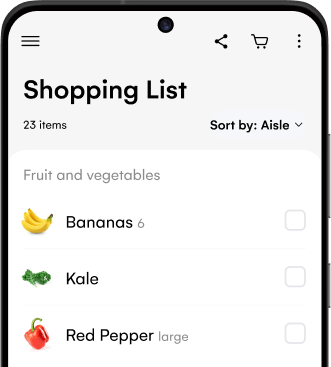Estimated reading time: 5 minutes
Starting a new diet can be hard, especially if you have to give up a lot of your favorite foods. This may eventually lead to eating off plan. And once you’ve fallen off the wagon, it can be difficult to get back onto your healthier eating habits again. Incorporating cheat meals and cheat days into your diet is an option that allows you to include meals that are typically restricted from your diet. Sounds like something you could get behind? There are definitely some perks of being a cheat meal supporter.
But is it beneficial for your weight loss journey, or not? And should we even be calling them ‘cheat’ meals? Let’s dig into the science to see.
What exactly are cheat meals?
A cheat meal can be defined as a meal that includes foods that are typically restricted from a diet plan. A cheat day is a day that consists of mostly cheat meals. Cheat meals have various definitions, especially since everyone has different goals and it is important to make those goals work for them. Some may consider a cheat meal a free for all, where they can eat anything. Others feel like it should be accounted for. And yet another idea is that cheat meals or days should be planned accordingly and used only if it is beneficial to their overall goals.
Not all diets allow cheat meals, such as the keto diet. If you are on a restrictive diet due to medical conditions, a cheat day may look different. Always discuss any concerns with your healthcare provider before beginning any new diet program.
When we use the term ‘cheat meal’ it can make food seem forbidden or sinful. When a food is considered to be forbidden it can trigger feelings of guilt or shame when you eat it. Sometimes it is beneficial to change the wording of things to help overcome this psychological aspect.
For example, using the term ‘favorite meals.’ Or simply accepting that occasionally eating things which aren’t the most nutrient-dense option is a normal part of people’s eating habits. If you can incorporate your favorite meal into your diet, and it happens to be pizza, the concept is similar to that of a cheat meal. The benefit is that it removes the negative connotation that comes with the word cheat.

Are cheat meals good for weight loss?
Having a cheat day has its pros and cons. It is believed that having a cheat meal or even a cheat day allows room to enjoy your food within the constraints of an eating plan. This can often make it easier to adhere to a diet on a longer term basis. Why? Because the eating plan is sustainable instead of being heavily restrictive. Even with cheat days or meals, weight loss may still be possible due to the caloric restriction during the week. That said, it is important to make sure the cheat meals/days don’t completely negate the calorie deficit that was created throughout the rest of the week. Carefully planning cheat meals and days may help.
As mentioned above, the amount of calories can vary greatly with cheat meals, which may have an impact on weight loss goals. Cheat meals could sabotage weight loss goals but it would depend entirely on how many calories are consumed per meal and how often these meals are being eaten. If your ‘cheat’ is a triple stacked pizza with extra cheese, pepperoni, and a mayonnaise base which is eaten every Friday and Saturday then it’s likely to impact your weight loss. If you eat burger once in a while, you’re less likely to see an impact.
Cheat meals have been reported to be higher in carbs than fat. Studies that looked at the use of cheat meals reported that cheat meals can contain anywhere from 1,000 to 3,000 calories per meal. However, the majority had around 1,000-1,500 calories. If a cheat meal is consumed a few times a week, it may offset the caloric restriction that is done during the other days.

Do cheat meals or days boost metabolism?
You’ve probably heard plenty of people say that having a cheat meal regularly ‘shocks’ your body into metabolizing higher calories. Therefore, they say, it actually helps you lose weight in the long run.
The theory is that consuming lots of calories occasionally can help boost your metabolism. The jury is still out on that, unfortunately.
One theory centers around the idea that cheat days increase production of the hormone leptin, which is what tells your brain that you’re full. When you restrict calories (which typically happens when you’re trying to lose weight), leptin supply is decreased. Some research suggests that a cheat meal or day can circumvent this and increase leptin production while also boosting your metabolism (albeit temporarily).
Others argue that this boost in both metabolism and leptin is temporary. Therefore, it won’t have any effect long-term. Especially as the extra calories consumed are likely to outweigh the benefits of a boosted metabolism.
Research on the subject is still mixed. Deciding whether or not to incorporate occasional meals or days of higher-calorie foods is more a personal choice than anything else.

To cheat or not to cheat?
There is never a one size fits all approach to nutrition. Finding an eating pattern that works with your lifestyle is the key to success. There are a few things to keep in mind when considering incorporating cheat meals and cheat days. This may not be the right approach for you if it causes binge eating, creates a feeling of guilt, or if you find it difficult to get back on track after a cheat meal.
If this type of dieting is too extreme for you, there are options that offer more flexibility. Intuitive and mindful eating promote an “all foods fit” approach, so this focuses more on how you feel.
Whether you choose to incorporate cheat meals or cheat days into your life, planning always helps with reaching goals. Scheduling your ‘cheats’, and which meals you want to include may make this easier.
Download Samsung Food to find recipe inspiration (whether it’s for cheat meals or not!). Additionally, there’s meal planning, shopping lists, and detailed nutritional breakdowns of recipes and ingredients. It’s free on both iOS and Android!

